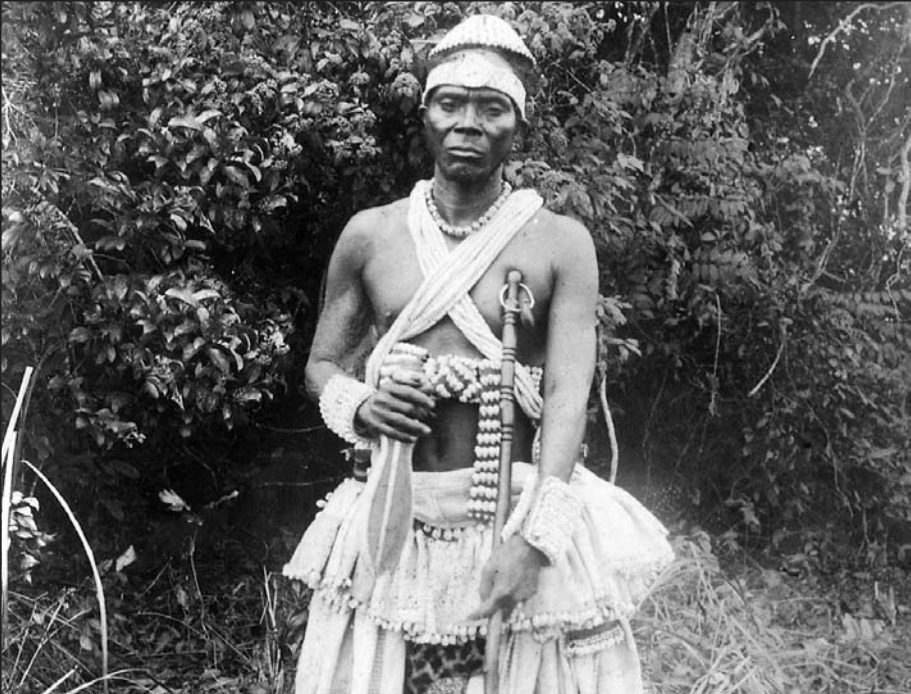ANGOLA – MAY 15, 1902
It began in a seemingly innocent way. Early in 1902 Ovimbundu gathered to celebrate the inauguration of Kalandula as paramount chief of Bailundu, one of their major kingdoms. The event became a huge party, featuring drumming, dancing, and beer-drinking. Portuguese traders in the area saw the inauguration as an opportunity to make money, and lots of it. They inflated prices. One trader sold five kegs of rum for five slaves. Another trader sold two kegs of rum to an Ovimbundu chief, Mutu ya Kevela, but the chief, in accordance with Ovimbundu trading custom, said that he would pay later once he had returned from a rubber-collecting trip. In an act calculated to shame Mutu ya Kevela, the trader insisted on payment while the celebration was still going on. This offended not only Mutu ya Kevela, but also his fellow rulers. The trader left but returned later, threatening to take Mutu ya Kevela as a slave if he did not pay immediately. As word of this insult spread throughout Bailundu, simmering anger reached a boil. The American missionary Robert G. Moffat reported to his board, “This was more than the Chief and the old men could stand, to see one of them taken as a slave.” When Mutu ya Kevela refused once again to pay up, the Portuguese trader decided to appeal to a higher authority. He went to the nearby Bailundu fort and lodged a formal report of the matter to the captain major, who in turn summoned Mutu ya Kevela and gave him 10 days to pay or else face more fines. Legally, the captain major could not impose fines, but it was common practice for these Portuguese officials to take such action anyway. Tensions mounted. With the support of other Ovimbundu leaders, Mutu ya Kevela stood firm. The captain major sent a sergeant and two soldiers to demand payment. They were greeted with insults and mocking from the Ovimbundu and returned to the fort empty-handed. They reported that Mutu ya Kevela would not recognize the captain major’s authority over him. Neither side felt they could back down. The Bailundu leaders began meeting regularly, and unknown people spread the word, “Shoot…Drive out all Portuguese; we are tired of trouble and rum.” Soon hundreds of people gathered on a hill that overlooked the Portuguese fort. They jeered and shouted insults. Rumors of war circulated widely. Terrified white traders sought refuge at the fort. Within days, violence would rip apart the area and change life in Bailundu forever…(read more from source below).

